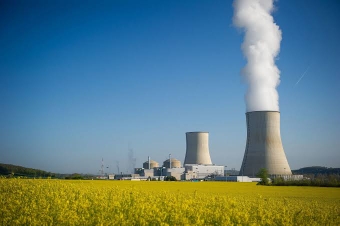The Central Government is considering an important change in the country’s Atomic Liability Act (Civil Liability for Nuclear Damage Act, 2010). So that the long -standing concern of foreign suppliers can be removed. According to a report by Reuters, India’s Atomic Energy Department (DAE) has prepared a draft. The Citizens Atomic Liability Act, 2010 proposes to remove the section. In which suppliers have been held financially liable in the event of accidents.
This possible amendment is being made with the intention of attracting foreign investment in India’s nuclear sector. Especially American companies such as General Electric and Westinghouse Electric have so far shocked India’s entering the nuclear power market. Because under the current law, they could have to pay unlimited compensation for accidents.
According to Reuters, the draft prepared by DAE is a major step towards bringing Indian law to international standards. The proposed amendment not only talks about limiting the liability of suppliers. Rather, a time limit will also be fixed for compensation claim. Which will be clearly mentioned in the contract.
The purpose of this change is to strengthen the nuclear power sector in India to achieve the goal of generating 100 GW of nuclear power by 2047 by Prime Minister Modi. Debashish Mishra, Chief Growth Officer of Deloitte South Asia, said in this context, “India needs nuclear power as a clean and essential energy source. Setting compensation limits will remove a major concern of suppliers.”
This change in nuclear law can also bring a new height to the US-India bilateral trade. According to Reuters reports where this trade was $ 191 billion last year. At the same time, it is estimated that it can increase to $ 500 billion by 2030. It is likely that this proposed amendment will be introduced in the upcoming monsoon session of Parliament in July.
Significantly, in 2010, India implemented the Civil Nuclear Liability Act. Which was brought as an answer to the questions that came up after the Bhopal gas tragedy of 1984. In that tragedy, at least 5,000 people lost their lives due to poisonous gas leak from a factory owned by American multinational company Union Carp. Later in 1989 Union Carbide set out-off-court settlement of $ 470 million.
